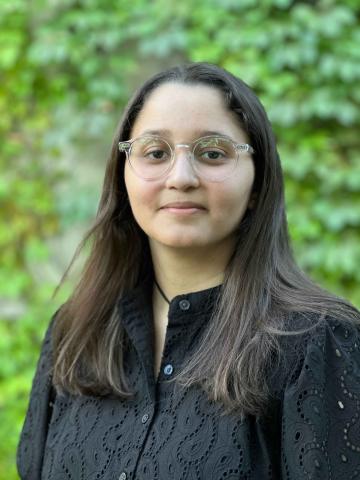
Didi is an Egyptian Archaeologist, a National Geographic Explorer, and the director of the Memphis Kom el-Fakhry Archaeological Project (MKAP) in Egypt. Her main research interests include understanding ancient Egyptian settlement patterns and ancient landscapes through the lens of remote sensing, GIS, and 3D modeling. She has used these technologies to further propel cultural heritage preservation efforts and education initiatives in Egypt, including several outreach opportunities with National Geographic Learning.
In addition to directing the Memphis Kom el-Fakhry Archaeological Project (MKAP), Didi has conducted archaeological fieldwork at several sites in Egypt, including at Tell Edfu, Deir el-Bahri, Asasif, and Hermopolis Magna. She has also worked as a remote sensing research consultant at NASA Langley Research Center and NASA Goddard Space Flight Center, in addition to completing a Space Archaeology internship at NASA Goddard Space Flight Center.
- Ph.D. Egyptian Archaeology, University of Chicago, 2024
- M.A. Egyptian Archaeology, University of Chicago, 2019
- B.A. Anthropology (Archaeology), University of North Carolina Wilmington, 2017
Egyptian archaeology; human-environment interactions; settlement patterns; landscape archaeology; climate change in antiquity; environmental archaeology; remote sensing; Geographic Information System (GIS); machine learning
- Near Eastern & Egyptian Art and Archaeology
- The Archaeology of Ancient Lives
- Seminar in Egyptian Art and Archaeology
- Archaeology of the Fayum
- Urbanism in Ancient Egypt (Spring 2026)
- Collapse in Ancient Egypt and the Eastern Mediterranean
2024 El-Behaedi, R., Diamond, K., Silva, L., Plekhov, D., Witt, C., Ahmed, E. “Rediscovering Memphis: A PreliminaryReport of the 2023 Season of the Memphis-Kom el-Fakhry Archaeological Project (MKAP).” Journal of the American Research Center in Egypt.
2024 Ghoneim, E., Ralph, T., Onstine, S., El-Behaedi, R., El-Qady, G., Hafez, M., Atya, M., Ebrahim, M., Fahil, A., Khozym, A., Sobhy, M. “Discovery of the Ahramat Nile Branch: A Hidden Ancient Waterway of the Egyptian Pyramid Chain.” Nature Communications Earth & Environment, 5 233.
2022 El-Behaedi, R. “Detection and 3D Modeling of Potential Buried Archaeological Structures Using WorldView-3 Satellite Imagery.” Remote Sensing, 14(1):92.
2018 El-Behaedi, R. & Ghoneim, E. “Flood Risk Assessment of the Abu Simbel Temple Complex (Egypt) based on High-Resolution Spaceborne Stereo Imagery.” Journal of Archaeological Science: Reports, 20: 458-67.